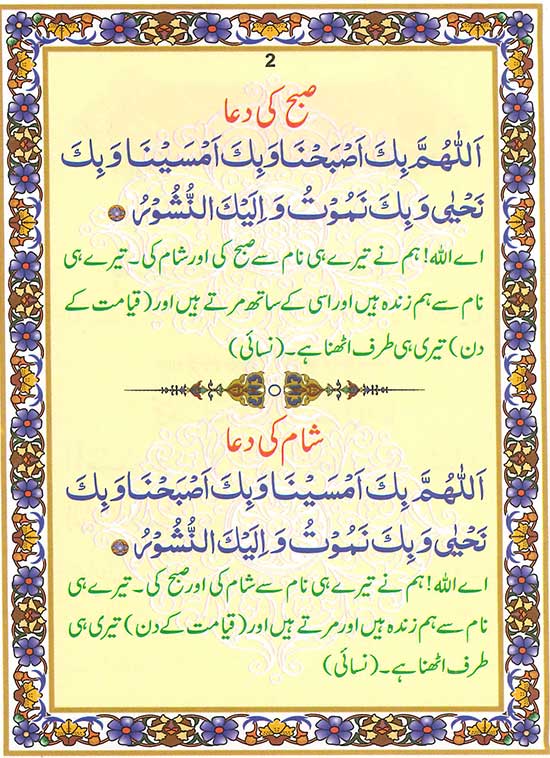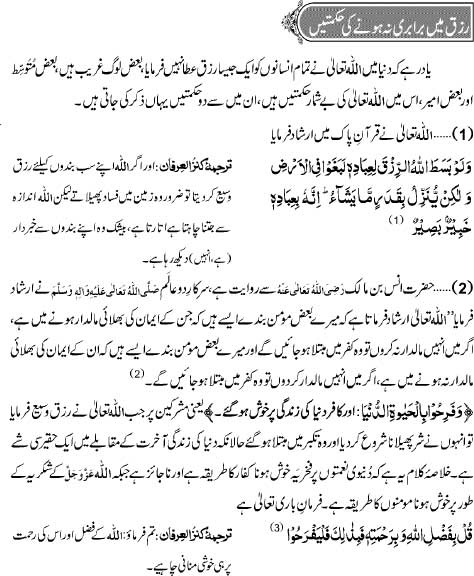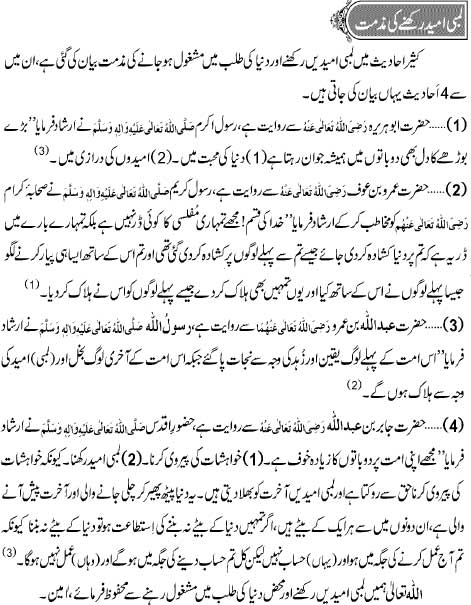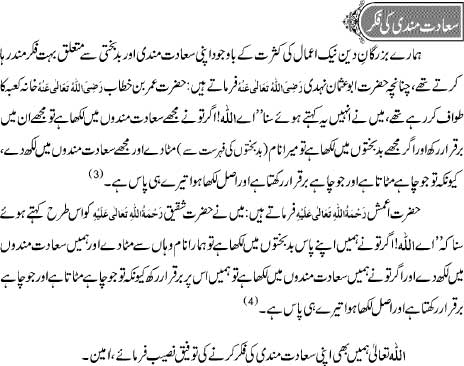
Importance Of Being Truthful
Being truthful means speaking the truth and also saying things that reflect reality. Being truthful is one of the necessities of a human society, one of the virtues of human behavior, and brings great benefits, whilst lying is one of the major elements of corruption in human society, and the cause of the destruction of social structure and ties, one of the most evil features of bad conduct, and causes widespread harm. Hence Islam commanded truthfulness and forbade lying.
Allah says: “O you who believe! Be afraid of Allah, and be with those who are true (in word and deeds).” (9:119)
Ibn Katheer said: “It means: be truthful and adhere to truthfulness, and you will be among its people and will be saved from calamity, and this will make a way out for you from your problems.”
Allah says: “if they had been true to Allah, it would have been better for them.” (47:21)
Abd-Allah Ibn Mas’ood (radi allahu anhu – may Allah be pleased with him) said: The Messenger of Allah (sallallahu alaihi wa-sallam – may the peace & blessings of Allah be upon him) said: “You must be truthful, for truthfulness leads to righteousness and righteousness leads to Paradise. A man will keep speaking the truth and striving to speak the truth until he will be recorded with Allah as a siddeeq (speaker of the truth). Beware of telling lies, for lying leads to immorality and immorality leads to Hellfire. A man will keep telling lies and striving to tell lies until he is recorded with Allah as a liar.” (Muslim)
This Hadith indicates that truthfulness leads to righteousness, an all-embracing concept that includes all kinds of goodness and different kinds of righteous deeds. Immorality is basically an inclination towards deviation from the truth, and the immoral person is one who is inclined to turn away from the path of guidance. Hence immorality and righteousness are incompatible.
Al-Hasan Ibn Ali Ibn Abi Taalib (radi allahu anhu) said: I memorized from the Messenger of Allah (sallallahu alaihi wa-sallam): “Leave that which makes you doubt for that which does not make you doubt, for truthfulness is certainty and tranquility, whilst lying is doubt and confusion.” (Tirmidhi)
In the lengthy Hadith of Abu Sufyaan (radi allahu anhu) describing his meeting with Heraclius, Abu Sufyaan (radi allahu anhu) said: (Heraclius) said, “What does he (the Prophet sallallahu alaihi wa-sallam) command you to do?” I said, “He says: worship Allah alone and do not associate anything in worship with Him, and abandon that which your forefathers did. He commands us to pray, to be truthful, to be chaste and to uphold the ties of kinship.” (Bukhaari and Muslim)
- October, 19
- 3320
- Human Rights
- More
A Living Language
The Qur’an was able to hold the Arabic language in thrall from the moment it was revealed. Indeed its haunting rhythms rocked the whole Arabia from Sudan to Syria and from Morocco to Oman.
While the Qur’an continues to occupy the pedestal as an abiding model for literary Arabic, the languages of other scriptures had all become dead.
In fact, Arabic has defied the usual norms of the evolution of languages through history. The French scholar Ernest Renan (1823-1894), who had carried out extensive research on Semitic languages, had this to say about the Arabic language:
The Arabic language is the most astonishing event of human history. Unknown during the classical period, it suddenly emerged as a complete language. After this, it did not undergo any noticeable changes, so one cannot define for it an early or a late stage. It is just the same today as it was when it first appeared (quoted by Khan).
In acknowledging this “astonishing event of human history” this French Orientalist, was in fact acknowledging the miraculous nature of the Qur’an. It was the Qur’an’s phenomenal literary style which preserved the Arabic language from alteration, such as other languages have undergone.
A Challenging, Transformational Book
There is no other book in human history that has molded, and is continuing to mold, the life of generations of people as the Qur’an.
Every verse of the Qur’an has become the unalterable source of a code of laws that govern every aspect of the life of Muslims.
This was a book that reformed and refined the lives of thousands of Bedouins who could not think of anything beyond the confines of their clans before; a book that transformed the camel-herds of Arabia into Caliphs and learned judges; a book that brought into being the renowned universities and centers of learning that awakened a new enlightenment in the world, such as no other civilization of the past could match.
Muslims consider it a brilliant and lasting miracle of God because Prophet Muhammad’s only source of inspiration for the revolution he brought about was the Qur’an.
With the Qur’an in his hand, Prophet Muhammad gave shape to the nucleus of a universal society in the Arabia of those days, out of those scattered and cantankerous desert tribes, who had little by way of scientific knowledge or material resources.
Their initiation into a stable Islamic cultural order was effected independent of all the socio-political systems or powers existing in the world at that time.
The Qur’an was at the center of this unique spiritual revolution. All the factors required for forging unity among tribes, races and social classes, for the liberation of thought patterns and the ennobling of knowledge. Indeed all the criteria for social transformation were derived from the very text of the Qur’an and from the culture that emerged from the Qur’an.
Even aggressors who ravaged Islamic lands and triumphed over the Muslims owing to their military superiority, lost their dominance in the end when they were confronted with the spiritual power of Islam; and eventually, many of them adopted the religion of the people they had conquered.
Rizq Mein Brabri Na Honay Ki Hikmatein

Ibaadah (Worship) And Levels Of Love
Al-‘Ibaadah (worship) which we are commanded to perform includes the meaning of humility and love, it contains intense humility before Allah (subhaanahu wa ta’alaa – Glory be to He, Allah, the Most High) together with the intense love for Him. The uppermost level of love is the adoration (Tatayum) and its lowermost level is the interest, because the heart is first interested in the beloved. After the interest comes the affection, then the love, and finally the adoration. In Arabic “Taym-u-Allaah” (the adorer of Allah) is used to mean “Abd-u-Allaah” (the worshiper of Allah) because the adorer is the one who yields completely to their lover.
One who submits to someone with hatred is not worshiping him. And one who loves someone without submitting to him is likewise not worshiping him; this is like a man who loves his son and friends. Therefore, neither love nor submission alone are sufficient in worshiping Allah (subhaanahu wa ta’alaa). Allah must be loved most by Al-‘Abd (the slave) and He (subhaanahu wa ta’alaa) must be the greatest of all in his sight. Nothing deserves complete love and submission except Allah . It is a futile love when anything has been loved for other than the sake of Allah (subhaanahu wa ta’alaa). And whatever has been highly regarded without it being by the Command of Allah, its glorification is rejected.
The love for Allah (subhaanahu wa ta’alaa) and Ar-Rasool (the messenger Mohammed) [sallallaahu ‘alayhee wa sallam – may the peace & blessings of Allah be upon him], should override any other love.
Allah (subhaanahu wa ta’alaa) said:
“Say: If your fathers, your sons, your brothers, your wives, your kindred, the wealth that you have gained, the commerce in which you fear a decline, and the dwellings in which you delight are dearer to you than Allah and His Messenger, and striving hard and Fighting in His Cause; then wait until Allah brings about His Decision (torment). And Allah guides not the rebellious folk.” [At-Tawbah:24]
Thus, the essence of love should be due to Allah and His Messenger, so too with the obedience. For the obedience is due to Allah and His Messenger, and pleasing is due to Allah and His Messenger,
“But it is more fitting that they should please Allah and His Messenger (Muhammad) if they are (true) believers.” [At-Tawbah:62]
Lambi Umeed Ki Muzamat

The Virtues Of Sitting In The Masjid
The Prophet (saas) Said:
“… Then when he enters the Masjid, he is in (the state of) prayer as long as it is the only thing keeping him from leaving (i.e., the only reason why he is staying in the Masjid is to wait for the next prayer). And the Angels send prayers upon one of you as long as he is in the seat (spot) that he prayed in; they say, ‘O Allah, have mercy on him; O Allah, forgive him; Allah, accept his repentance,’ as long as he does not harm anyone (with speech or deed) while he is in it , and as long as he does not nullify his state of purity (i.e., by passing wind, etc..)..”” 1
From Allah’s vast mercy to His slaves, He (swt) gives them a reward similar to the person who is praying, just for sitting in the Masjid and waiting for the next congregational prayer; furthermore, He (swt) makes His angels supplicate for them.
We must keep in mind that, as the Hadith informs us, certain conditions must be fulfilled if you are to achieve the aforesaid reward and honor. First, nothing other than the prayer should be preventing you from going back to your home or work or elsewhere. Second, for the angels to supplicate for you, you must remain seated in the spot you prayed in. However, another view is that their supplication encompasses both those who wait for the prayer anywhere in the Masjid and those who remain seated in the spot they prayed in. The Phrasing of the Hadith points to the first view being correct. If you harm Muslim worshipers with speech or deed, or if you do something to nullify your state of purity (i.e., pass wind,etc.), you will not gain the reward of a person who waits for prayer, and the angels will not make the aforementioned supplication for you.
Related Issue: Many people fail to take advantage of a blessed time – the time between the Adhaan (the call to prayer) and the Iqaamah. You will find some people who spend that time looking around at worshipers who are praying or reciting the Qur’an; others who stare idly at the carvings in the Masjid; and yet others who daydream. They would all do much better were they to use that time by reciting the Qur’an, remembering Allah (swt), and supplication to Allah (swt) especially considering the fact that it is a time wherein one is likely to have his supplications answered.
________________________
1) Related by Bukhaaree (176), Muslim (649), Ahmad (7382), An-Nassaaee (733), Abu Daawood (559), and Maalik (382). And the wording mentioned above is from Muslim’s narration of the Hadith
Sadat Mandi

The Little Candle
Once upon a time a little candle stood in a room filled with other candles, most of them much larger and much more beautiful than she was. Some were ornate and some were rather simple, like herself. Some were white, some were blue, some were pink and some were green. She had no idea why she was there, and the other candles made her feel rather small and insignificant.
When the sun went down and the room began to get dark, she noticed a large man walking toward her with a ball of fire on a stick. She suddenly realized that the man was going to set her on fire.
“No, no!!”, She cried, “Aaaaagghhh! Don’t burn me, please don’t burn me!!” But she knew that she could not be heard and prepared for the pain that would surely follow.
To her surprise, the room filled with light. She wondered where it came from since the man had extinguished his fire stick. To her delight, she realized that the light came from herself.
Then the man struck another fire stick and, one by one, lit the other candles in the room. Each one gave out the same light that she did.
During the next few hours, she noticed that, slowly, her wax began to flow. She became aware that she would soon die. With this realization came a sense of why she had been created.
“Perhaps my purpose on earth is to give out light until I die”, she mused. And that’s exactly what she did.
Lord created you and me to produce light in a dark world. Like that little candle, we all can produce the light and enlighten the world, no matter how small we are or of what color we might be. But we can’t produce light until we receive it from an outside source. And that source of light is ‘ALLAH’, our Lord, the creator of the world.
Mr. No Problem
A believer is a no-problem person. In all situations and circumstances he stands out as Mr. No Problem. His sensitivity towards others is so heightened that he does not like creating any problems whatsoever. The companions of the Prophet were very sensitive in this way, so much so that if a horse-rider’s whip fell to the ground, he would not ask a passerby to pick the whip for him. Instead, he would dismount and pick the whip himself (Abu Dawud, 2/124).
We learn from Islamic traditions that the best Muslim is one from whose evils people are safe. From one of these traditions we have the saying: A believer is one who fears God and keeps people safe from his evil (Al-Bukhari).
According to another tradition recorded in Al-Bukhari, the Prophet of Islam observed: “Sadaqa (voluntary alms) is incumbent upon every Muslim.” That is, every Muslim should be a giver. Asked what to do if one had nothing to give, he replied that one should earn and be a giver. When asked what the would-be giver should do if he were unable to earn, the Prophet replied: He should voice his good intentions towards others. Asked if he were unable to do even that, the Prophet replied that he should then refrain himself from causing harm to others, because this is also a gift. (Fathul Bari, 10/462).
According to another hadith the Prophet observed: “A believer with perfect faith is one who struggles to spend his life and property in the cause of God. And the second in rank is one who is engaged in prayer in some corner and from whom people are safe (Sunan Abi Dawud, 3/5).
We have a large number of such traditions in book of hadith. These demonstrate a range of characters which can be taken as models for posterity. Of this selection, the individual, who ranks highest in character is one who benefits others. The honest, but still acceptable standard of character in Islam is that of the individual who, being entirely harmless, creates no problems for the rest of society.

